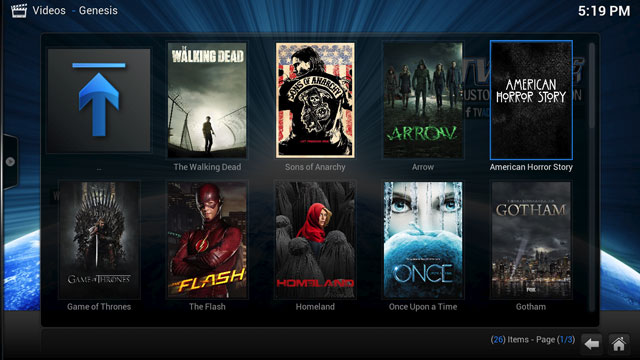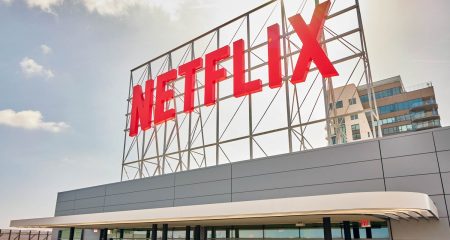 The anti-piracy squads are at it again. In the past few months, the UK government — one of the more zealous enforcers of copyright — has been responding to Kodi, the free media centre software that is fostering a wave of illegal viewing.
The anti-piracy squads are at it again. In the past few months, the UK government — one of the more zealous enforcers of copyright — has been responding to Kodi, the free media centre software that is fostering a wave of illegal viewing.
It’s quite simple. All you need is to download and install Kodi, a system that evolved out of the erstwhile XBMC, an aborted Xbox media centre project that became its own beast. Then you find a guide to install Exodus, a third-party plugin that scrapes online piracy video feeds. Kodi and Exodus are not related, in the same way the browser on your computer is not related to the piracy sites you could access through it.
The criminals, bless their innovative spirits, have wasted no time copying Netflix. Today there are countless websites that allow you to stream, at will, video content, including TV shows and movies. No more downloads: if you have a reasonable broadband connection, the world of entertainment is yours. These sites offer collections larger than any legal outfit. That is a benefit when you neglect to license the material.
Naturally, this is a problem. Past piracy outfits such as torrents had at least a semblance of ethics to fall back on — namely that the content is distributed for free. Yes, the torrent tracker sites made money, but the groups leaking movies and such did it more in a fervour of Robin Hood-esque altruism. Modern streaming sites do it all for the money. I know this because they hate Exodus, which scrapes their content without including ads (or the malware that often resides on many of these sites).
So, to be clear, Kodi and Exodus are actually making pirates lose money.
Yet the anti-piracy brigades, which have never passed on a soft target, are going after Kodi. Since the software has gained a lot of mainstream traction, it has attracted all the attention as well. It is far easier to prosecute someone selling “loaded” Kodi media centres that have all the third-party plugins than to shut down a pirate streamer in another country.
We saw a similar trend in the early 2000s, when music and movie groups gleefully sued grannies whose Internet was used by their grandchildren to download illegal files. They hoped, in vain, that it would set an example, but it just exposed them as bullies who pick on little guys for maximum effect.
Today this is happening again, only with Kodi the stakes are higher. We risk losing something special here.
Convergence — as it was called 10 years ago — spoke to the unification of technologies in a home, specifically entertainment technologies. One media box to rule them all. Everyone tried: Microsoft and Sony had their gaming consoles, Sony and Samsung offered Blu-ray players, Apple made its own box and even the hard drive manufacturers gave it their best.

Meanwhile, the tide started rising around XBMC, which became OSMC and then Kodi. It became a platform and, using Linux’s repository concept, allowed a large third-party community to grow around it. Today a download and a few plugins, costing you nothing but data, can put a service on your laptop or smartphone that offers everything from pirate channels to Netflix (some media boxes run Android, with Kodi, Netflix, Showmax and even DStv streaming as individual legal apps — you don’t need to be a pirate to benefit from this tech.)
It’s nothing short of amazing, and ample proof that our technologies need not always be driven by profit margins, just as I don’t need to mull my return on investment when I buy paper to write on.
Yet watchdogs are threatening Kodi, scoring points by taking down its practitioners. This has done absolutely nothing — nil, zilch, nada — to stop pirate streaming sites. It is true — and something Kodi’s supporters acknowledge — that the pro-piracy plugins are not helping either. But while there is no reasoning with criminals, surely we can demand slightly better thinking from the people fighting copyright infringement?
I don’t want to lose a marvel such as Kodi because some copyright overseers are trying to justify their retainers. The bullying tactics are back, but now much more is at stake than whether your granny might go to jail. We risk killing a golden goose than 15 years of mega-corporations couldn’t cultivate.
- James Francis is a freelance writer whose work has appeared in several local and international publications




